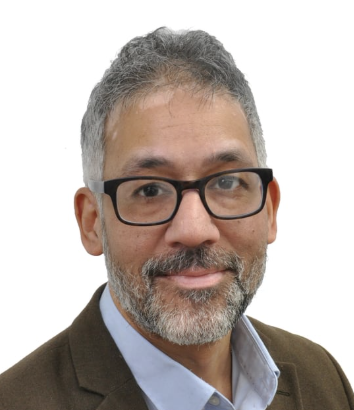This year I dusted off my running shoes and completed my first ultra marathon. Marathons are so nineties! No one is that interested, too mainstream, honestly. If you want something to talk about with your mates go ultra, which is any distance over 26.2 miles. Full on zeitgeist. Swap tarmac for forest trails. Leave your Garmin watch at home and run by feel. Ditch the gels and eat real food. Scratch away the surface 26.2 miles and find out what lies deep underneath. Will you find deep reserves or a hollow nothingness? Instead of running with 50,000 runners for a few hours you will be with a few hundred over the whole day.
I entered the worryingly named 100 hills. Flat courses are fine for personal bests but gradients, climbs, they test you in a totally different way. This race consisted of 50km of muddy trails through the Chilterns.
I've enjoyed running marathons but there is something different about ultras. As the starting siren went I quickly found myself at the back of the throng. I found myself alone for long stretches. Occasionally I would chat with another runner. I met a woman who said, "I once ran 91 miles but the organisers wouldn't let me run the final nine miles of the 100 because it had started snowing." That has stayed with me. Sometimes we stop ourselves from completing something and other times an external force bigger than us stops us dead in our tracks.
There were some sections that were too steep to run. A fast hike is all that I could muster. Or a not so fast hike. All the normal barometers of success, such as pace per mile, go out of the window. The only metric that mattered was could I keep going until the end.
When a patient comes to therapy I don't think of it as a sprint, or even a marathon, but an ultramarathon. Speed isn't that relevant. The biggest question is can they keep moving forward through the difficulties they encounter.
When I run or see a patient for a long time it makes me think of the poem by Antonio Machado, Border of a Dream:
Traveller, the path is your tracks
And nothing more.
Traveller, there is no path
The path is made by walking.
By walking you make a path
And turning, you look back
At a way you will never tread again
Traveller, there is no road
Only wakes in the sea.
In a world where we are awash with thousands of psychiatric diagnoses and knee deep in medicines that promise to do this and that, how does a patient make their own path? More and more rigid and orthodox protocol therapies are arriving in our market driven culture. But isn't therapy some what of a gamble? The patient and therapist co-create the path. The path is made by running, walking on trails. You have to leave the tarmac behind. The path is made by talking, the next word, the next breathe.
After mile twenty, covered in mud, my ego battered and depleted I recalled Mike Tyson's line, "Everyone has a plan until they get punched in the mouth." Plan A,B,C and D had all evaporated. With a healthy dose of delusion and denial I had underestimated how hard I would find this challenge. After recently recovering from a broken arm, I was keen not to fall on the slippery muddy trails.
Still I had enough in me to get to the finish. I was fuelled by sugar water and sandwiches. But I took more sustenance from supporters who had a word for me. That was the biggest fuel. The care of friends, the care of strangers who refilled my water bottles.
Reader, I did finish before the cut off. Nice volunteers brought me a small plate of hot food and a cup of tea. I was pleased.
A week later I reported back to my running coach, Sophie Grant, a professional ultra runner, and asked her about her understanding of resilience. She said:
"For me resilience isn't about surviving that one big thing, it's about the daily effort to build your mental and physical strength. It absolutely is a muscle that can be developed much like our fear receptors. Having small doses of hard things builds a bank of knowledge that you'll be OK. I like to think of my resilience bank as a filing cabinet. Every time I have a new experience or overcome a doubt that gets filed away for the next time.
As runners I think we actively seek out these experiences in our sport but we all go through periods in our lives that build resilience. Often when things are tough the only way is through and that may end in a positive outcome or a negative one but regardless the world keeps spinning and we move on."
My coach is a very resilient person. She runs top races over 100 miles, fast! I am not a resilient person. It took me a month to recover fully from my single race. Still, I now have an experience to put in my filing cabinet for next time. I can't really say I enjoyed the race. More like I endured it! To be honest I am still digesting the experience.
I found many parallels with long-term psychotherapy. The terrain is always changing, energy levels go up and down, and sometimes you feel like packing it in. However the experience of sticking with it is truly precious.
Dr Ajay Khandelwal is a verified Welldoing psychotherapist in London and online

